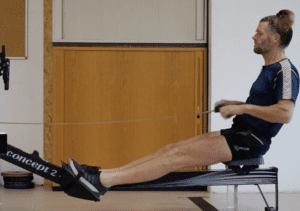Carrying on from John Parker’s Part 1 published last week….
Step 4 – plan for the medium term
If you identify “departments” within the club to cover the main areas of activity (coaching, equipment, membership, social etc). Then make a list of things to do over the next 3 years. Ideally your list will have some things for this year/season and some that are for next and then year after.
It may be that you have 30 jobs to do on your list. To get these done, you must target 30 people to do the job; ideally each one with an assistant. Why so many? Well by focusing each person on a single task, you’re far more likely to get things done. If 30 people is too many or you don’t have that nubmer available, go for fewer tasks.
Why have an assistant?
The reason to recruit a young assistant for each task in your department is to get someone onto the team who helps for 2 years and then they can take over the whole job.
In theory every coach should have a young assistant coach. Every secretary should have a young secretary assistant.
If you think you can’t do this – you’ll be amazed how many young people are keen on this sort of thing but get scared off it – my daughters wanted to umpire netball but were told there was a 4 week course to learn first. However, I believe they could have been given small umpiring tasks alongside an experienced umpire and gradually cover the 4 week syllabus over a 2 year period.
So what about day-to-day running for your sports club / committee?
Have a written values statement that covers the purpose and philosophy of the organisation [that was step 1]. That becomes your “bible” and keeps everyone on track and answers most questions. If anything is presented to the committee, they can judge the proposal against this document which will show whether the proposal supports and furthers the aims of the club or not. Makes decision making easy.
Have a written contract with all members
In the contract document [which could be your membership application form] you put:
- the ethics of your organisation
- to support members
- to be honest
- to play by the rules
- not to criticise others
- no bad language
- respect the referees and umpires
- always be a good host.
Parents and children both sign the contract when they join. This should have a back-up statement covering:
- the role of a coach
- the role of a player
- role of a parent.
This sets out expectations and the boundaries of each role and prevents conflict.
Why do this?
The wrong reasons to write this is as a result of having troubles with parents arguing with the referee on the sidelines and it became confrontational.
The right reasons are to create a positive environment for everyone – create it as passively as you can – welcome people to the set-up and say we’d love to have you and here are our expectations.
Got any questions for John? Write them in the comments below and we’ll get you answers.
John Parker writes the Advice Series of e-books for Sporting Parents, Coaches and Athletes.






